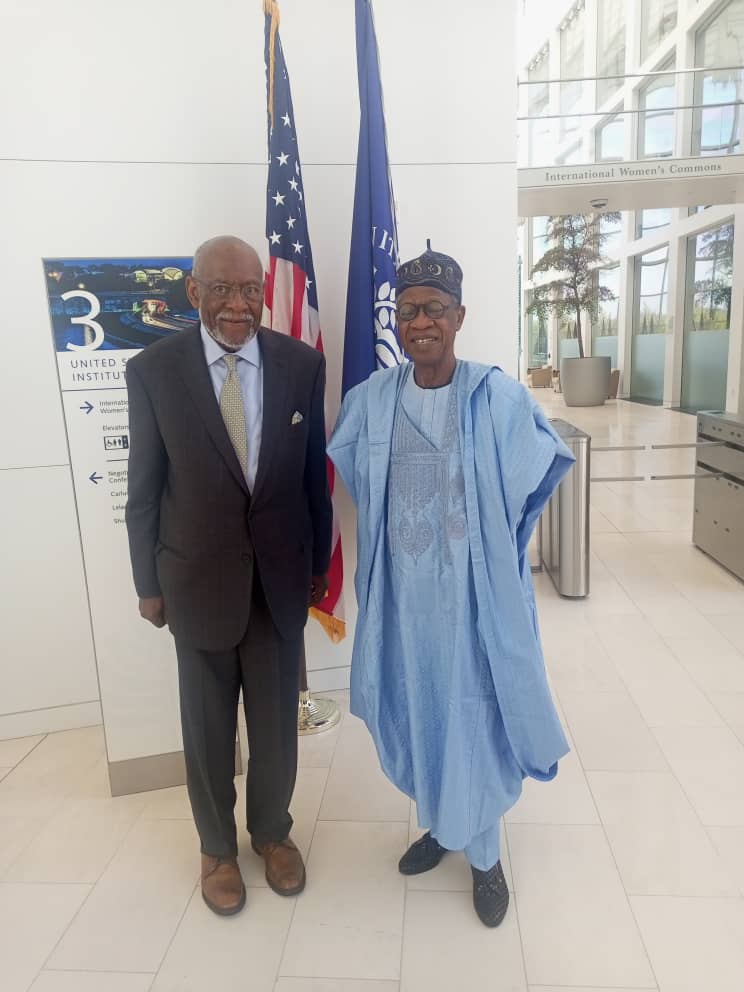News
How Tinubu won Nigeria’s presidential election – Carson

Mr Johnnie Carson, American Diplomat and a foreign observer in the just concluded 2023 general elections says three factors are responsible for the victory of the President-elect, Bola Tinubu.
Carson, an Executive Officer of the United States Institute of Peace (USIP) spoke in Washington DC when the Minister of Information and Culture, Alhaji Lai Mohammed paid an official visit to the institute to engage on the concluded elections.
The diplomat said he co-led National Democratic Institute (NDI) and International Republican Institute (IRI), International Election Observation Mission to Nigeria during the elections.
According to him, Tinubu, the ruling All Progressives Congress (APC) candidate, undoubtedly won the polls and will be sworn-in come May 29, except something happens dramatically with the court.
“Do you know why he won, he got the money, he had the best national organisation that worked for him and the ground game,” he said.
Carson emphasised that for a candidate to win an election in Nigeria, like a lot of democracy in the globe, the three things, including substantial and significant financial resources were needed.
Others, according to him, are a national working organisation and a grass-root acceptance.
He said while Tinubu had all the three criteria in his kitty during the polls, the other major contenders did not have all.
Speaking specifically on the Labour Party Presidential candidate, Carson said, “on the part of Mr Peter Obi, he did not have the ground game and a national organisation.
“Obi is, however, very popular, particularly among the young, educated, urban and sophisticated,” he said.
Carson said that the presidential election was one of the most competitive polls in Nigeria and in Africa.
He, however, observed that the Independent National Electoral Commission (INEC) needed to up its game.
“Nigeria deserves the very best electoral process.
“To me, the problem is not with Tinubu and the other candidates,” he said.
Carson hailed President Muhammadu Buhari for his commitment in delivering a free and fair election for Nigeria.
He said the president “is a man of outstanding integrity” and he demonstrated the attribute in the past elections.
On his part, the minister said considering where INEC was coming from and where it were today, there were massive improvements in the conduct of the 2023 polls.
Conceding that there was room for improvements, the minister said the introduction of a new technology Bimodal Voter Accreditation System (BVAS) by INEC underpinned the credibility of the elections.
According to him, BVAS cut out fraudulent votes, ghost voters and multiple votes.
Mohammed said the election was conducted against the backdrop of fuel shortage, mounting insecurity and poorly timed cash swap policy.
Our correspondent reports that the minister also had engagements with the Council on Foreign Relations, a well versed think-tank on African affairs and foreign relations chaired by a Nigerian, Dr Ebenezer Obadare.
He was also at the Reuters News Agency; The Politico, an international political newspaper, and Zenger News, a channel that publishes its contents on Forbes.
During his respective interactions with the Think-tanks and international media, the minister presented the facts of the just concluded polls as against skewed narratives of the opposition and naysayers.
Our correspondent reports that the interactions also delved into economy and foreign affairs.
At Reuters, the Agency’s recent investigation of alleged secret programmes of coerced abortion of women and girls freed from insurgents’ captivity were discussed.




























 Davido's Net Worth & Lifestyle
Davido's Net Worth & Lifestyle 
